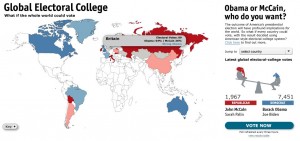Liu Jianchao, a spokesman for China’s Foreign Ministry, has said that the Chinese government had a right to censor web sites that violated the country’s laws, reports the New York Times.
Tag Archives: China
MediaBistro: Worldwide editions of Time magazine will come together
Staff cuts at Time Europe are part of a bigger plan ‘to consolidate the international editions of Time so that they will be primarily edited out of New York,’ MediaBistro reports.
“When it’s over, the various overseas editions of Time will be edited largely out of New York, and to a lesser extent, out of Hong Kong, insiders said.”
Breakingviews teams up with China’s Caijing
Financial news website breakingviews.com has added another content partner in the guise of Chinese financial title, Caijing.
Caijing’s editors will select a daily column from the site’s output for re-publication from today, a press release from breakingviews.com said.
The site, which was founded in 1999, has already entered into syndication deals with the Telegraph, New York Times and Fortune.
AFP: China could be first to label ‘web addiction’ as a disorder
China could become the first country to classify Internet addiction as a clinical disorder as a result of the growing concern over ‘compulsive web use’ by millions of Chinese.
Reuters UK: China’s journalists in bad health
Most Chinese reporters are in poor health because of heavy smoking and a sedentary lifestyle, Chinese state media reported on Friday.
World Association of Newspapers calls for press freedom in China
The World Association of Newspapers (WAN) and the World Editors Forum have written to the Chinese government about international standards of press freedom in the country.
Laws in China restricting foreign journalists were temporarily relaxed during the Olympic Games in Beijing and have recently been extended by authorities.
In a letter dated October 21, WAN wrote to Chinese Premier Wen Jiabao in an attempt to change the laws permanently:
Your Excellency,
We are writing on behalf of the World Association of Newspapers and the World Editors Forum, which represent 18,000 publications in 102 countries, to welcome the extension of the relaxation in media regulations, but also to call on you to take further steps to uphold international standards of press freedom.
In the run-up to the Beijing Olympics, your government introduced new rules that allowed foreign journalists greater freedom to travel in the country without prior government permission and to talk to anyone who was willing to be interviewed. Those regulations were set to expire on 17 October, however, shortly before they expired new regulations were introduced that recognise these rights.
While welcoming the extension of the more relaxed regulations for foreign journalists, we are concerned that they do not extend to domestic journalists and that many fundamental rights necessary for the proper functioning of a free press are not observed. For example, there is no protection of news sources, it is not possible to report freely on Tibet and hotels are obliged to report the arrival of a foreign journalist to police. Furthermore, with more than 30 journalists and at least 50 cyber reporters imprisoned, China jails more journalists than any other.
We respectfully call on you to extend the relaxed regulations to domestic journalists, to introduce further reforms so that your country might fully respect international standards of press freedom, and to ensure that all
those detained for exercising their right to freedom of expression are immediately released from prison.We look forward to hearing from you at your earliest convenience.
Yours sincerely,
Gavin O’Reilly
President
World Association of NewspapersXavier Vidal-Folch
President
World Editors Forum
South China Morning Post (via Editors Weblog): Hong Kong business papers launch paid-for websites
The Hong Kong Economic Journal and Hong Kong Economic Times have both launched new websites with paid-for access models.
Subscribers to the Times’ site, who will pay HKD598 (£49) a year, will have access to full pages of the newspaper, a three-year archive and real-time markets coverage.
WAN: Call for Chinese government to extend relaxation of media rules
The World Association of Newspapers (WAN) has asked the Chinese government to extend its relaxation of media regulation beyond October 17.
Your chance to vote in the American election without citizenship
We could hardly resist putting this pretty map up here, and the motive behind its design makes it even better. The reason is arrived in our inboxes today is because the Economist is inviting the world to vote in the American presidential election in its Global Electoral College (GEC) – we can dream that it would have an impact, at least.
Now, this isn’t some kind of ‘let’s influence the silly Americans’ à la the Guardian’s G2 2004, but a rather nice re-drawing of the electoral map. In the new version 195 of the world’s countries get a say in the outcome of the next presidential election.

“America’s presidential campaign has fascinated people around the world, the Economist.com’s editor, Daniel Franklin said In the release accompanying the map. “Maddeningly, though, only Americans get to vote. But what if the entire world had a say?”
Although based on the American system, it aims to put pay to the significance of the swing vote (‘there are few countries whose votes in the GEC are a foregone conclusion’). The vote closes November 2 2008 when the results will be announced live in New York.
Online, users can look at the world map to see how each of candidates is doing on a global, and country-by-country basis, and find links to the Economist’s election analysis. Right now it’s looking pretty good for Obama. For starters he has 94 per cent of votes in India, 88 per cent of votes in Britain, and 86 per cent support him in China.
It gets more complicated than this, so visit the website for more details.
RSF: China re-blocks Reporters Without Borders website
RSF reports that access to its main website has again been blocked within China. The site had been made accessible a week before the start of the Olympic Games.